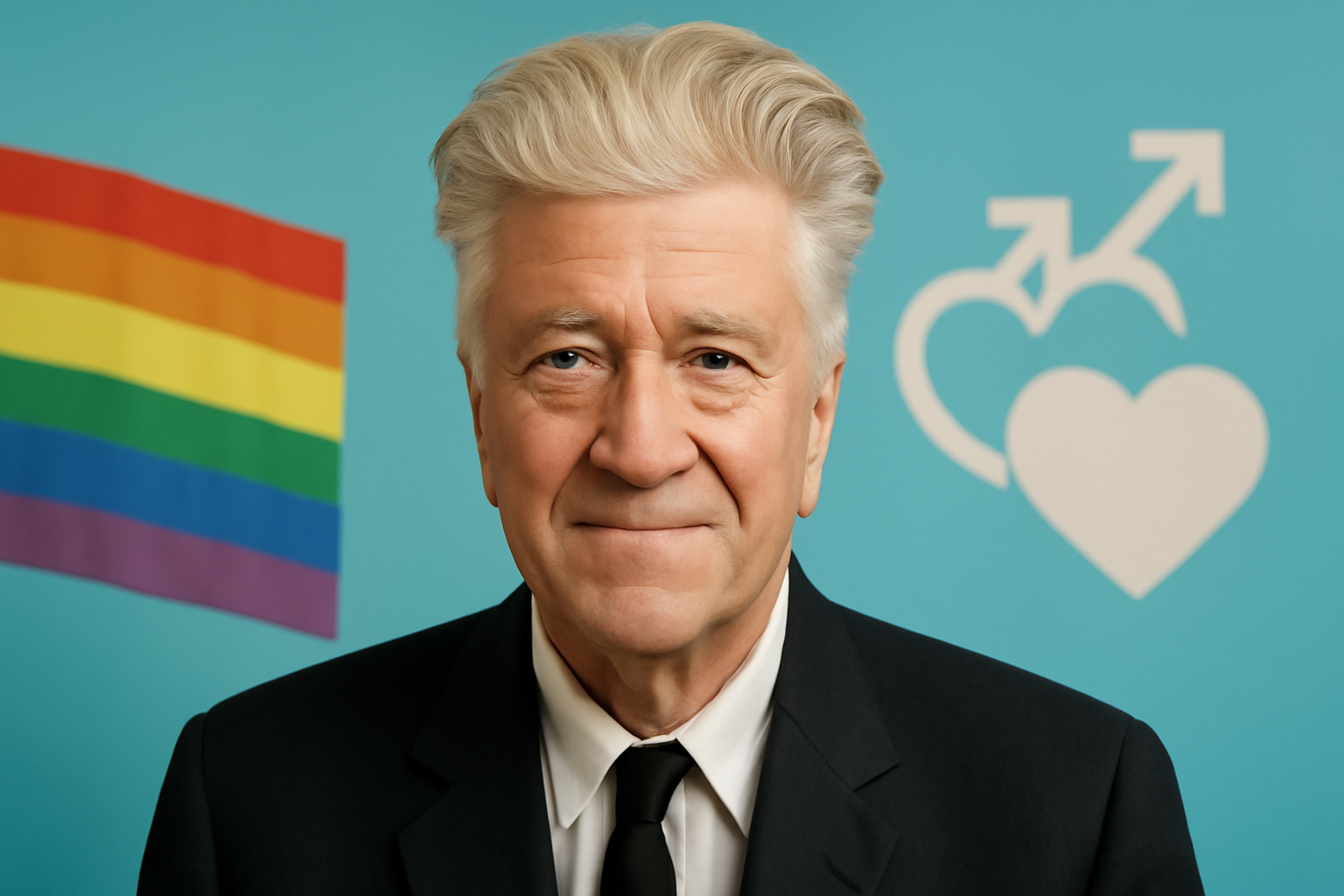
David Lynch, an iconic figure in the world of cinema, created a surreal universe of stories that not only captivated audiences but also brought to life authentic queer characters.
Lynch, who gained fame for his visionary work on "Twin Peaks," passed away on January 16th, at the age of 78. His family shared, "It is with deep regret that we announce the passing of the man and the artist, David Lynch. We would appreciate some privacy at this time. There’s a big hole in the world now that he’s no longer with us. But, as he would say, ‘Keep your eye on the donut and not on the hole.’"
Throughout his career, Lynch built an acclaimed filmography that includes classics such as "Blue Velvet," "Mulholland Drive," "Eraserhead," "Inland Empire," and "The Elephant Man." However, beyond his distinctive style and narrative complexity, Lynch's work is celebrated for its genuine depiction of queer stories and characters.
The Iconic Lesbian Romance in Mulholland Drive
"Mulholland Drive," released in 2001, stands out as one of Lynch's most renowned films. This surreal thriller features a poignant relationship between two women, Rita and Betty, whose bond transcends the boundaries of reality. Their romantic journey is both genuine and intense, making "Mulholland Drive" a cornerstone in queer cinema.
The film's depiction of Rita and Betty's relationship is woven into a tapestry of dreamlike sequences, where their love becomes the anchor amidst the supernatural. This portrayal not only challenges traditional narrative forms but also celebrates the complexity and depth of queer relationships.
Lynch himself reflected on the film in 2015, noting its personal significance: "If someone said to you, ‘What was it about that girl that really made you fall in love with her?’ You couldn’t say just one thing. It’s so many things. It’s everything. Same with this."
The Trans Detective Denise Bryson in Twin Peaks
Another significant contribution to queer representation in Lynch's oeuvre is the character of Denise Bryson in "Twin Peaks." Introduced in the latter part of the show's second season, Denise, portrayed by David Duchovny, is a trans woman who navigates her identity with confidence and authenticity.
In "Twin Peaks: The Return," the sequel to the original series, Lynch revisits Denise's character. A memorable scene features Lynch's character, Gordon Cole, affirming Denise's identity with the powerful line, "And when you became Denise, I told all your colleagues, those clown comics, to fix their hearts or die." This line has resonated with many as a rallying cry for trans rights and acceptance.
Denise's character is significant not only for its time but also for its genuine portrayal of a trans woman in a major television series. Despite some dated aspects, Denise's confidence and authenticity still shine through, making her an enduring symbol of queer representation.
Lynch's work consistently highlighted stories of outsiders, misfits, and outcasts, weaving in themes of found family, loss, and the search for identity—universal themes that resonate deeply with the LGBTQ+ community. His storytelling often embraced the complexities of human emotion and connection, providing a space where queer narratives could be explored openly and authentically.
As Lynch leaves behind a legacy of groundbreaking work, his contributions to queer cinema will continue to inspire and influence future generations of filmmakers and audiences alike. His unique ability to create worlds where queer characters thrive is a testament to his enduring impact on the film industry.
David Lynch's passing marks a significant loss in the world of cinema, but his legacy lives on through the powerful stories he told and the barriers he broke. His films and characters will continue to resonate, reminding us of the beauty and complexity of love in all its forms.
Related Posts
Exciting New Images Released for '100 Nights of Hero': A Captivating Historical Fantasy
Unpacking '100 Nights Of Hero': A First Look If you're a fan who loves getting lost in historical fantasy, get ready because new images from *100 Nights Of Hero* have just dropped. This much-anticipated film stars Nicholas Galitzine, Emma Corrine, and Charli XCX, and brings Isabel Greenberg's beloved graphic novel storybook magic onto screens. Under Julia Jackman‘s masterful direction, *100 Ni [...]
Mary Trump Critiques Her Uncle's Use of Religion for Political Gain
Mary Trump, a clinical psychologist and openly lesbian, has been quite vocal about her criticisms regarding her uncle, former President Donald Trump. Recently, she took issue with how he uses religion as a means, in her view, simply as a tool, especially evident when discussing his decision on a military strike against Iran. In her blog, she expressed concerns that invoking God was less about fait [...]
The Enduring Journey from Darkness to Light: A Story of Resilience
One key part about taking charge in life? Defining yourself instead being shaped by someone else. It's all about living true and breaking away from those social norms dictating who "deserves" rights based on identity or fitting in with mainstream ideas. Often, society creates these isolating "closets" that keep people who dare defy these norms hidden and unsafe. History shows how religion's been [...]